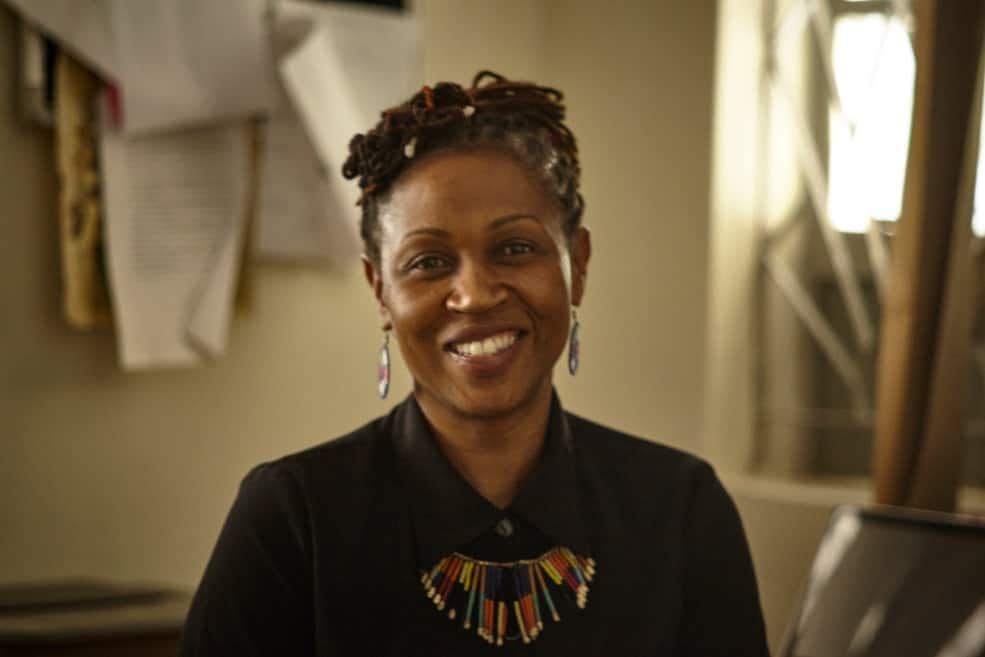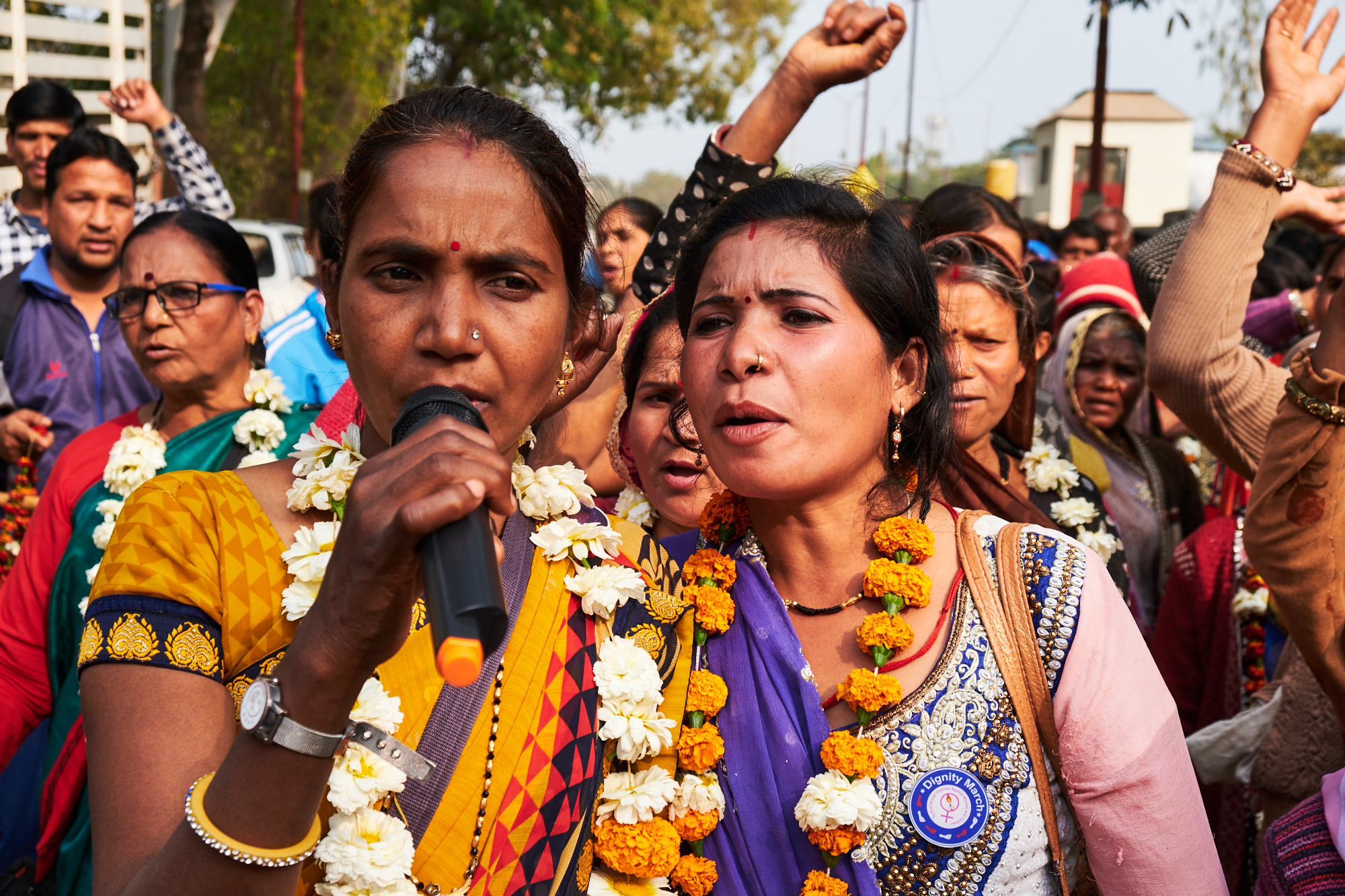This article was published more than 4 years ago.
Last year, ahead of a hotly contested election, the long-time autocratic president of Belarus, Alexander Lukashenko, echoed a familiar refrain. Belarus, he said, is not ready to vote for a woman.
He was wrong. After a highly irregular contest, Lukashenko declared an implausible landslide victory against his opponent, Svetlana Tikhanovskaya. Months later, female activists lead massive weekly demonstrations as Lukashenko clings to power in the throes of what some have styled a women’s revolution.
Nearly all of the current crop of global strongmen climbed to power by trampling on women’s rights. From Belarus to Brazil to the United States, the new authoritarians have sold out women to boost their brand and build their base. Along the way, though, they made a critical mistake: they pinned their political fortunes on women’s submission. And around the world, feminists are standing up for their rights—and fighting for democracy.
![[FTDES] women group photo](https://globalhumanrights.org/wp-content/uploads/2021/03/FTDES-women-group-photo-1-scaled.jpg)
Leaning on misogynist norms is an essential part of the authoritarian toolkit. Autocrats assert male dominance to establish their legitimacy. Then, once in office, they oppress women to justify and maintain their grip on power.
It’s all part of what Valerie M. Hudson, a political scientist at the University of Texas, has described as a social contract between men and their rulers. Most men are willing to cede power to a few other men. But in exchange, all men enjoy power over women.
That dynamic is at the crux of authoritarian power. “From the outset,” says long-time women’s rights advocate Marina Pisklakova, “these political actors consider women outside the social contract.”
Pisklakova sees this on display in her native Russia where, she says, President Vladimir Putin’s regime actively tries to push women back into traditional roles and deny them political power. Recent policy changes, such as the decriminalization of domestic violence, give men power over women in domestic settings. In turn, they’re able to limit women’s access to the public sphere.
To them, says Pisklakova, “women’s main purpose is giving birth and that is reflected in political calculations and social policy.” In Poland, judges nominated by the far-right Law and Justice Party have rolled back reproductive rights. Former U.S. president Donald Trump’s administration expanded the so-called global gag rule, which denies U.S. funding to organizations who advocate for or provide abortion services.
Strongmen rely on this patriarchal social contract to achieve, maintain, and exert their authority. To undermine their power, we have to render the contract unenforceable—and that starts with gender equality.

Women’s rights advocates have shifted cultural norms even in the most conservative societies. In Uganda, for example, Tina Musuya and her colleagues at the Center for Domestic Violence Prevention have reduced violence against women in the communities where they work by more than 50 percent and decreased the number of people who see domestic violence as acceptable by nearly 70 percent.
In authoritarian contexts, where misogyny runs deep and political leaders reinforce their power with military might, changing the status quo is even harder. Yet in countries like Russia and Belarus, women activists are challenging gender norms in non-political ways and creating space for political change.
In Russia, demonstrations, podcasts, and the annual FemFest—a cultural and educational event that attracts millions—all challenge traditional gender norms and encourage feminist political engagement. In Belarus, women of all ages are leading marches; rather than rely on political slogans, their rallying cries speak to the humanity and values of their fellow citizens.
Women’s rights advocates have tried countless strategies to get out from under the thumb of patriarchy. We’ve argued for women’s equality as a matter of principle. We’ve demonstrated that it’s in the best interests of communities and families. We’ve proven that it contributes to successful national economies. And we’re showing why it’s necessary to preserve our democracies.

As long as autocratic leaders rely on the social contract of male domination, feminism poses an existential threat to their power. This means the success of women’s rights advocates is essential to reversing the rise of authoritarianism.
For activists like Pisklakova or Musuya to succeed, however, they need allies and resources. We need to reconsider how we support feminist movements—too much international funding is missing its mark. We must ensure activists have the support they need to challenge gender norms at the grassroots level, especially through education. We need to increase women’s opportunities for and avenues to political participation and leadership. And we need to invest in men who are ready to challenge oppressive gender norms.
This work, which transforms attitudes and cultural norms, is long, costly, and difficult. But without it, the road ahead is worse.
When women’s rights advocates succeed, they show us how to reject entrenched authoritarianism. “Getting people to think differently about gender,” says Pisklakova, “this is where change will be born.”